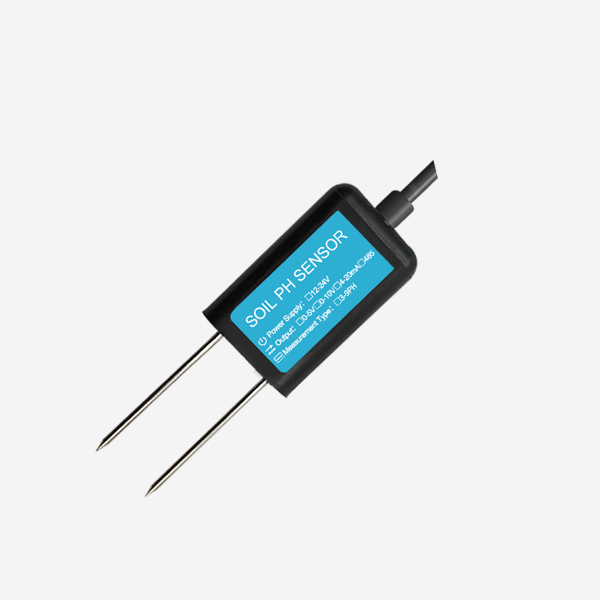Learn about soil ph sensors
Portable soil ph sensor is a device that measures the current pH of the soil. It detects soil pH by inserting two stainless steel probes vertically into the soil. We provide RS485 soil pH sensor, 0-5V soil pH sensor, 0-10V soil pH sensor and 4-20mA soil pH sensor. The sensor can be used in conjunction with our soil data logger.Soil pH is a measure of its acidity or alkalinity and plays a vital role in nutrient availability, microbial activity, and overall plant growth. To accurately assess and manage soil pH, the use of soil pH sensor has become increasingly significant. These sensors offer valuable insights and benefits that contribute to optimized soil health and agricultural productivity.
Features and benefits of soil pH sensor
Firstly, soil pH sensor provide accurate and real-time measurements. Traditional methods of assessing soil pH involve time-consuming and labor-intensive laboratory testing. In contrast, pH sensors provide instant readings directly from the field. This eliminates the need for sample collection, transportation, and analysis, saving valuable time and resources. With rapid and reliable measurements, farmers and land managers can make prompt decisions regarding soil management practices, such as adjusting nutrient applications or selecting suitable crops.

Secondly, soil ph sensors enable localized and site-specific monitoring. Soil pH can vary significantly within a field or even within different sections of the same plot. By using pH sensors, farmers can obtain precise information on spatial variations in pH levels. This allows for targeted soil amendments and treatments, optimizing resource allocation and minimizing unnecessary fertilizer usage. By tailoring inputs based on specific pH requirements, farmers can improve nutrient uptake efficiency, reduce environmental impacts, and ultimately enhance crop yield and quality.

Moreover, pH sensors facilitate the implementation of precision agriculture techniques. Precision agriculture involves the use of technology to manage agricultural practices with greater precision and efficiency. pH sensors serve as a valuable tool in this regard, as they provide data that can be integrated with other technologies like Geographic Information System (GIS) or Global Positioning System (GPS). By mapping and analyzing pH data alongside other factors such as soil moisture or nutrient levels, farmers can create detailed soil fertility maps and make informed decisions on targeted interventions, leading to improved resource management and overall farm productivity.
Another significant advantage of using soil pH sensors is their cost-effectiveness in the long term. While the initial investment in pH sensors may seem higher compared to traditional testing methods, their long-term benefits outweigh the costs. By continuously monitoring soil pH, farmers can identify and address any potential pH imbalances before they become severe problems. This proactive approach helps prevent nutrient deficiencies or toxicities, ultimately reducing crop losses and increasing profitability. Additionally, precise pH management can contribute to improved soil structure, water holding capacity, and nutrient cycling, ensuring long-term soil health and reducing the need for costly soil remediation measures.
In conclusion, the use of soil pH sensors holds great significance in optimizing soil health and agricultural productivity. Through accurate and real-time measurements, site-specific monitoring, integration with precision agriculture techniques, and long-term cost-effectiveness, these sensors empower farmers and land managers to make informed decisions and take proactive measures towards sustainable soil management. By recognizing the importance of maintaining optimal soil pH levels, we can enhance agricultural sustainability, protect natural resources, and secure food production for future generations.
